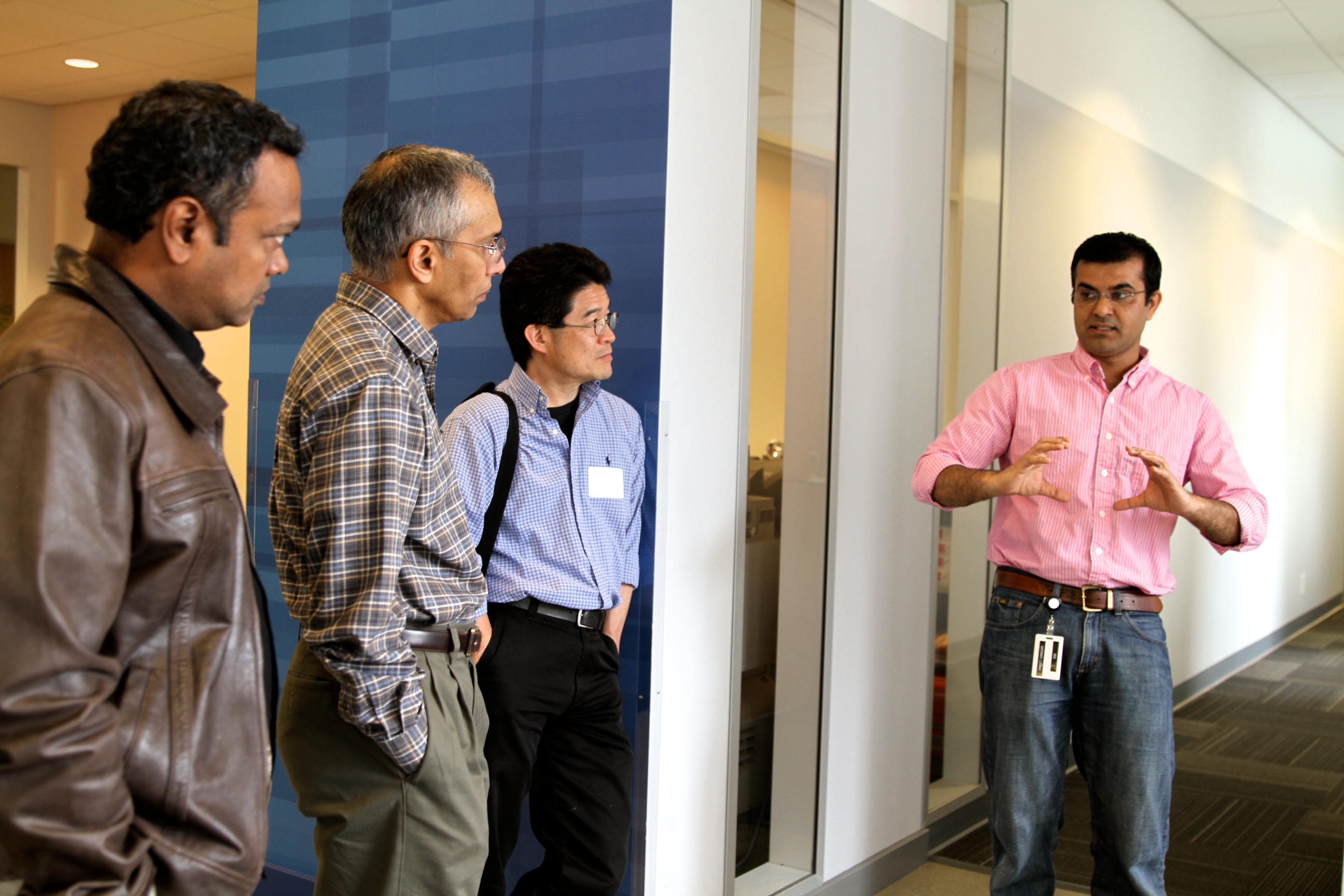Shifting the Education Paradigm
 isbscience.org/news/2014/06/02/shifting-the-education-paradigm/
isbscience.org/news/2014/06/02/shifting-the-education-paradigm/
Photo above: Dr. Vineet Sangar, right, a postdoc in the Price Lab at ISB, explains proteomics technology to a group of community college faculty, who participated in a systems biology workshop in May 2014.
By Dana Riley Black
Director of Logan Center for Education
Over the past two decades, systems biology has revolutionized traditional approaches to answering complex biological questions. The rapid advancement of computational power and the increased access to biological data, such as the sequencing of the human genome and environmental monitoring projects, have driven a paradigm shift such that all biological careers from lab technician to research scientist are now highly dependent on quantitative tools including sophisticated mathematical modeling, “big data” analysis, and computer simulation. This modern biology, naturally, requires new educational strategies and approaches to engage and prepare students in this evolving discipline.

As the pioneers of systems biology, ISB researchers have always believed that if we are changing how science is practiced fundamentally, then we have a commensurate responsibility to change how science education is practiced. For the past 14 years, ISB has advocated for quality science education for all and the education team has accomplished this in large part by providing professional development for K-12 science educators. We now have begun to create change at the college level.
Traditional undergraduate biology course pathways have supported students in developing knowledge in a single discipline with little opportunity for students to make interdisciplinary connections. Similarly, traditional pedagogical approaches to biology rarely support student opportunities to make interdisciplinary connections in or out of the classroom. As systems biology has revolutionized traditional approaches to answering complex biological questions, but the paradigm shift in undergraduate biology education has not taken place.
Learn more about ISB’s professional development work with K-12 “STEM” educators here.
A SYSTEMS APPROACH
ISB strategically address multiple levels of the education system or the populations and activities that influence change. The following is a snapshot of how ISB has begun working with Washington State’s community college system in effecting change in undergraduate biology education.
July 24-25, 2013
ISB hosts Washington State’s Community College Presidents’ Summer Retreat: Presidents from Washington State’s community and technical colleges received an introduction to systems thinking.
October 3, 2013
ISB hosts Undergraduate Systems Biology Curriculum Retreat: 20 participants representing faculty and administrators from community colleges and predominately undergraduate institutions in Washington State. Topics included:
- Systems biology curriculum enhancements
- Faculty development
- Institutional infrastructure

November 8, 2013
Presentation to Washington State’s Community College Instructional Commission
April 10, 2014
Presentation to Washington State’s Community College Academic Transfer Committee
May 16 & 30, 2014
Systems Biology Faculty Development Workshop: Community college presidents and the State Board of Community and Technical Colleges contracted ISB to provide workshops for faculty. Topics:
- Introduction to systems biology
- Tour of ISB (discussions with ISB staff)
- Human health and ecology case studies
- Introduction to systems biology education
- Faculty participated in initial planning for a Faculty Learning Community that will continue to partner ISB with community college faculty through the ’14-’15 academic year.





